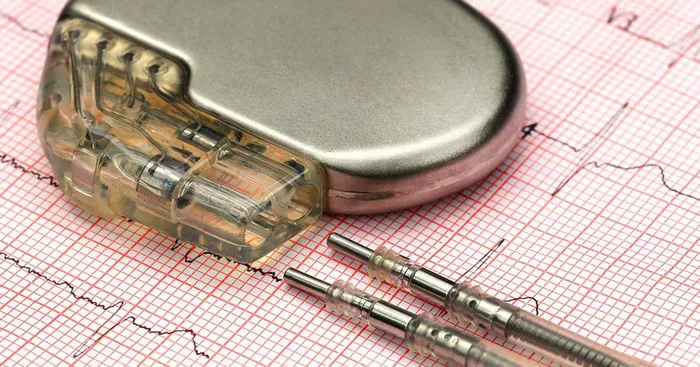Irregular heartbeat, medically known as arrhythmia, can be a concerning condition affecting the rhythm and rate of your heart’s beats. It can lead to symptoms like palpitations, dizziness, shortness of breath, and in severe cases, it may increase the risk of stroke or heart failure. Managing arrhythmia often involves lifestyle changes, but in many cases, medications play a crucial role in controlling and stabilizing heart rhythm. In this comprehensive guide, we’ll delve into the various medicines used to treat irregular heartbeat, their mechanisms of action, potential side effects, and how they fit into an overall treatment plan.
1. Antiarrhythmic Medications
Antiarrhythmic drugs are a primary class of medications used to manage irregular heart rhythms. They work by regulating the electrical impulses that control your heart’s rhythm. These medications are often categorized into different classes based on their specific effects on heart cells:
Class I Antiarrhythmics: These drugs block sodium channels in the heart cells, slowing down the conduction of electrical impulses. Examples include quinidine, procainamide, and flecainide.
Class II Antiarrhythmics: Beta-blockers such as metoprolol and propranolol are used to reduce the heart’s response to adrenaline, thereby slowing down the heart rate and stabilizing rhythm.
Class III Antiarrhythmics: Drugs like amiodarone, sotalol, and dofetilide affect potassium channels, prolonging the time it takes for the heart to recharge between beats and helping to maintain a regular rhythm.
Class IV Antiarrhythmics: Calcium channel blockers such as verapamil and diltiazem reduce the influx of calcium into heart cells, which can slow down the heart rate and regulate rhythm.
2. Anticoagulants And Antiplatelet Medications
Irregular heartbeats, particularly atrial fibrillation, can increase the risk of blood clots forming in the heart’s chambers. To prevent these clots from causing strokes or other complications, doctors often prescribe anticoagulant medications like warfarin, dabigatran, rivaroxaban, and apixaban. These drugs help to thin the blood and reduce clotting.
Antiplatelet medications like aspirin, clopidogrel, and ticagrelor may also be used in some cases to prevent platelets from clumping together and forming clots.
3. Rate-Control Medications
For some individuals with irregular heartbeats, the focus of treatment may be on controlling the heart rate rather than converting the rhythm back to normal. Rate-control medications, often beta-blockers or calcium channel blockers, help to slow down the heart rate, reducing symptoms like palpitations and fatigue.
4. Blood Pressure Medications
High blood pressure (hypertension) is a common comorbidity with irregular heartbeats. Medications to manage blood pressure, such as:
- ACE inhibitors
- angiotensin II receptor blockers (ARBs)
- diuretics and others
May be prescribed alongside antiarrhythmic drugs to optimize heart health and reduce the risk of complications.
5. Electrolyte Supplements
Maintaining proper electrolyte balance is crucial for heart function. Some individuals with arrhythmias may benefit from electrolyte supplements, especially if they have imbalances in potassium, magnesium, or calcium levels. These supplements can help support heart rhythm stability.
Considerations and Side Effects
While medications for irregular heartbeat can be highly effective, they may also come with potential side effects. It’s essential to work closely with your healthcare provider to find the right balance between symptom management and minimizing adverse reactions. Common side effects of antiarrhythmic drugs may include:
- Nausea and vomiting
- Dizziness or lightheadedness
- Fatigue
- Changes in blood pressure or heart rate
- Allergic reactions
In some cases, these medications may need to be adjusted or discontinued if side effects become problematic.
Conclusion
Medications play a vital role in managing irregular heartbeat, helping to control symptoms, reduce the risk of complications like stroke, and improve overall heart function. However, treatment plans should be personalized based on the type and severity of arrhythmia, underlying health conditions, and individual responses to medications. Regular monitoring and communication with healthcare providers are key to successful management of arrhythmias with medications.
FAQs
Can I stop taking medicine for arrhythmia?
It’s essential to never stop taking medication for arrhythmia without consulting your healthcare provider. Suddenly discontinuing antiarrhythmic medications can lead to a rebound effect, where the arrhythmia worsens or returns. Your doctor will assess your condition, monitor your progress, and determine the appropriate time and method for adjusting or discontinuing medications, if necessary.
Does Irregular Heartbeat Need Treatment?
In many cases, yes, irregular heartbeat (arrhythmia) does require treatment. The type and severity of the arrhythmia, along with its impact on your overall health and quality of life, will determine the appropriate treatment approach. Some arrhythmias may resolve on their own or be managed with lifestyle changes alone, while others may require medications, procedures, or devices to control heart rhythm and reduce the risk of complications.
Can arrhythmia be cured?
The term “cure” in relation to arrhythmia can be complex. Some forms of arrhythmia, especially those caused by reversible factors like medication side effects, electrolyte imbalances, or temporary stressors, may resolve with appropriate treatment and management of underlying causes. However, many arrhythmias are chronic conditions that can be managed but not necessarily cured in the traditional sense. The goal of treatment is often to control symptoms, improve quality of life, and reduce the risk of complications rather than achieving a complete cure. Treatment strategies may include medications, lifestyle changes, procedures such as catheter ablation, or implantation of devices like pacemakers or implantable cardioverter-defibrillators (ICDs) depending on the specific type and characteristics of the arrhythmia.


